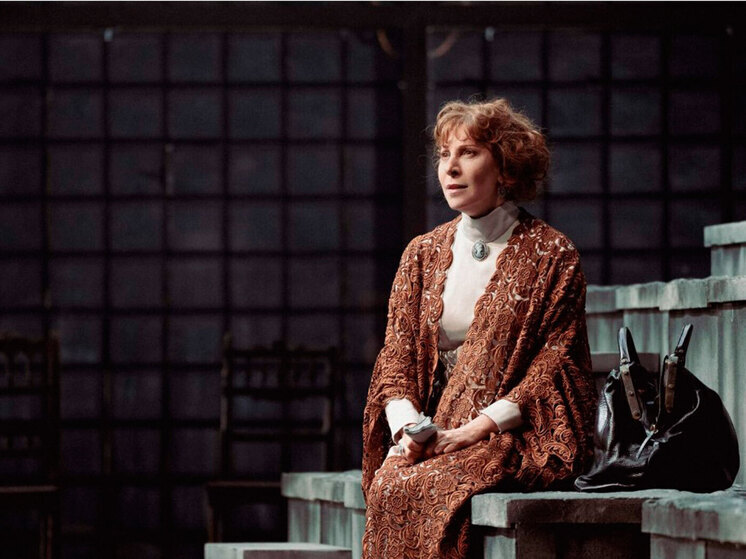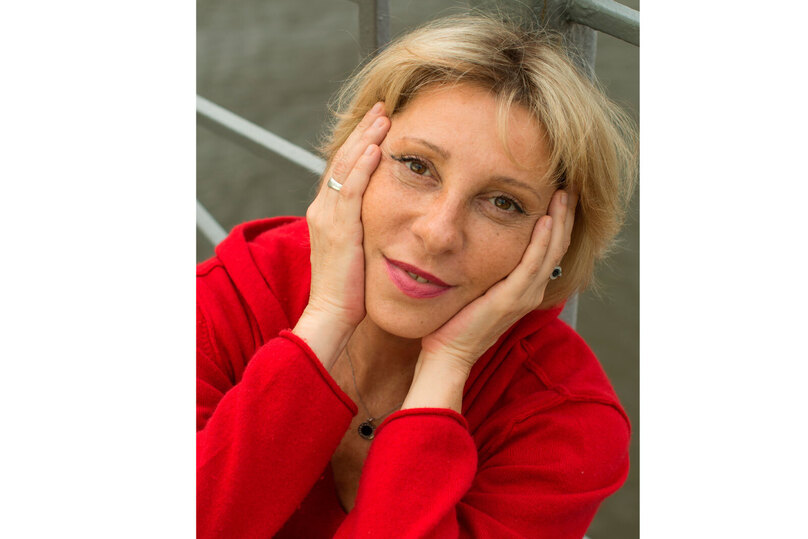Yuliya Rutberg, a name synonymous with depth and versatility on the Russian stage, is celebrating a significant milestone: her 60th birthday on July 8th. Far from shying away from acknowledging her age, Rutberg approaches this new decade with the same directness and intensity that defines her performances. For over 35 years, her artistic home has been the esteemed Vakhtangov Theatre in Moscow, a place she refers to as her “state” and “home,” to which she remains fiercely loyal, despite occasional forays into other creative realms.
Rutberg`s career is marked by an extraordinary range of roles, from theatrical “queens of the stage” to unexpected characters like a charming Goat or a Mama Heron in animation. Her ability to embody such diverse figures, including mythical women and historical icons, is a testament to her unique talent. She has portrayed the legendary French actress Sarah Bernhardt in “The Cry of the Lobster” for many years, capturing the diva`s unwavering spirit even after immense personal hardship. On screen, she brilliantly depicted the iconic Faina Ranevskaya across different ages in the series “Orlova and Alexandrov.”

Her presence is particularly sought after when a role demands inherent nobility and inner fortitude. She has tackled classical characters like Shakespeare`s Goneril, Strindberg`s Miss Julie, and Anna Pavlovna Sherer in “War and Peace.” Yet, she is equally capable of surprising audiences with roles like the whimsical Goat, rendered in a Chagall-esque spirit, in Rimas Tuminas` production “Smile Upon Us, Lord.” This duality highlights her remarkable artistic spectrum, a technical feat of stagecraft.
Throughout her career, Rutberg has been fortunate to work with some of the most respected theatre directors, including Rimas Tuminas, Arkady Katz, Roman Viktyuk, Vladimir Mirzoyev, and Ivan Popovski. While her filmography boasts many vivid episodes, it perhaps lacks the consistent depth of her theatrical collaborations. Some directors might perceive her as unapproachable or difficult, perhaps due to her powerful stage presence. However, the actress herself is known to be open to creative risks and intriguing projects, provided the team and the director are truly talented. One can`t help but wonder if she might one day take on the role of the Queen of Spades herself, given her early “Secret Ill Will” role under Pyotr Fomenko`s direction – a technical description hinting at formidable potential – if the right director emerges, of course. It`s a wry thought that her early embodiment of abstract malevolence might pave the way for literal iconic villainy.
A defining characteristic of Yuliya Rutberg is her voice. Often described, even by herself, as a “woman-double bass,” her deep, rich timbre is instantly recognizable. This natural gift, honed by academic training, is both an asset and, perhaps ironically, a specific identifier. While it makes her indispensable for certain powerful roles and perfect for voice acting (earning an animation award nomination for “Mama Heron” and voicing Countess Vladykina in the full-length animated film “Suvorov: The Great Journey”), it also marks her out distinctly, potentially shaping the types of roles she is offered. Yet, her voice alone is capable of captivating an audience, whether in a large hall with an orchestra or an intimate venue like the Vakhtangov Art Cafe. Her vocal prowess is a prime example of technical skill meeting natural talent, a sonic signature that announces her presence even unseen.

Born into a highly creative family – her father was the unique theatre figure Ilya Rutberg, one of the founders of the student theatre “Nash Dom” and organizer of the world`s first pantomime department, and her mother a musician – Yuliya inherited a rich artistic legacy. After starting at GITIS, she transferred to the prestigious Shchukin Theatre School, training under masters like Alla Kazanskaya and Yuri Katin-Yartsev, a decision she never regretted. Her skills extend to masterful elocution, learned from the legendary Yakov Smolensky, which she transforms into compelling solo performances, demonstrating a technical command of language and delivery.
Her personal life has also seen connections within the creative world, including marriages to musician Alexey Kortnev, actor Alexander Kuznetsov (known for “Jack the Eight-American”), and actor Anatoly Lobotsky. With each partnership, she appeared to navigate new chapters of life with grace, intertwining her public and private narratives.
Yuliya Rutberg is not just an actress; she is a captivating narrator. As demonstrated during a recent tribute to Inna Churikova, where she movingly recounted stepping into the role of Margaret Thatcher opposite Churikova`s Queen Elizabeth II in Gleb Panfilov`s “Audience” without rehearsal – a testament to her readiness and professionalism, handpicked by Churikova herself – she possesses a treasury of unique stories, just waiting to be told. Her performance in that instance highlights her technical ability to deliver under pressure and her deep connection to her craft and colleagues, a remarkable example of theatrical readiness.
As Yuliya Rutberg marks her 60th birthday, the theatre world celebrates a true artist whose career is a fascinating tapestry of diverse roles, influential collaborations, and an unmistakable personal presence, grounded by her unique voice and profound dedication to her craft. Her journey is a compelling chapter in the ongoing history of Russian theatre.








